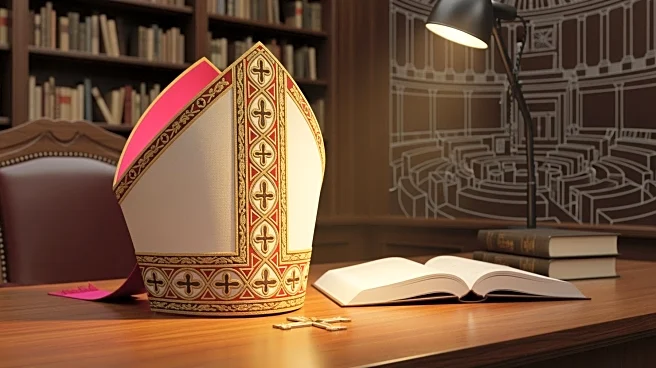What's Happening?
The Isle of Man's Legislative Council has advanced a bill that would remove the voting rights of the Bishop of Sodor and Man in both the Legislative Council and Tynwald Court. The Constitution Bill, introduced by Ramsey MHK Lawrie Hooper, aims to ensure
that only elected officials can vote on legislative matters, rather than appointed religious figures. An amendment stipulates that the bishop's voting rights will be removed either when the current bishop, the Right Reverend Tricia Hillas, leaves her post or five years after the bill receives Royal Assent. This amendment was proposed by MLC Gary Clueit to prevent pressure on Bishop Hillas to remain in her position to preserve the vote. The bill will return to the House of Keys for a final vote.
Why It's Important?
The removal of the bishop's voting rights is significant as it addresses concerns about the separation of church and state in legislative processes. By ensuring that only elected officials have voting power, the bill seeks to uphold democratic principles within the Isle of Man's parliamentary system. This change could impact the relationship between the church and the government, although the bishop's seat and voice will remain intact. The decision reflects broader discussions on the role of religious figures in government and could set a precedent for similar legislative changes in other regions.
What's Next?
The bill will undergo a final reading in the House of Keys, where lawmakers will decide whether to accept the amendment and pass the bill into law. If approved, the bishop's voting rights will be removed according to the timeline set by the amendment. Stakeholders, including church representatives and political leaders, may react to the decision, potentially influencing future legislative discussions on the role of religious figures in government.
Beyond the Headlines
The debate over the bishop's voting rights highlights ongoing discussions about the balance between tradition and modern democratic practices. The decision could lead to further examination of the constitutional role of religious figures in government and prompt similar legislative reviews in other jurisdictions.















